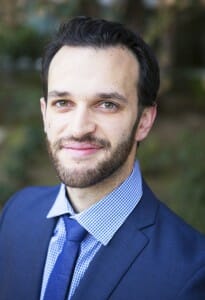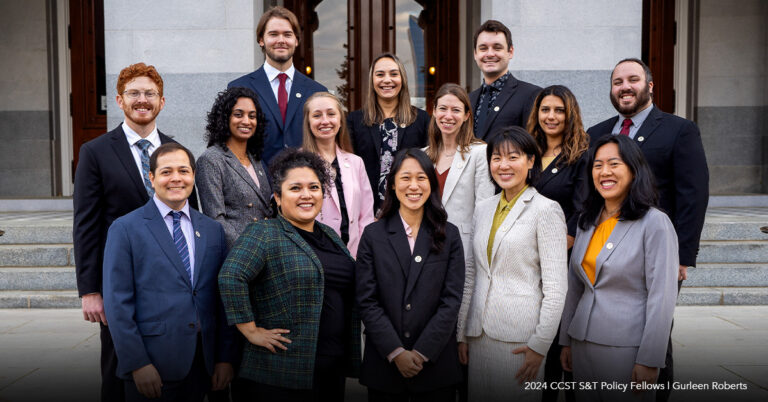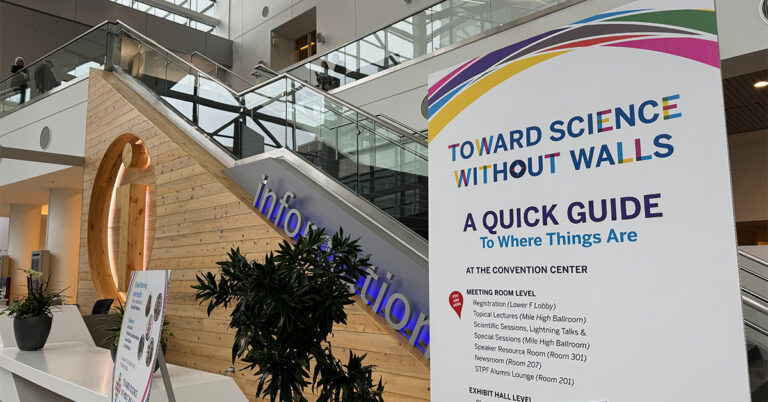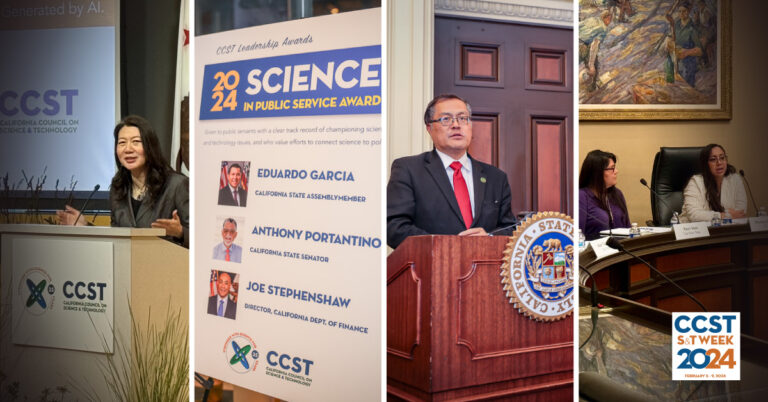Update: Applications for the CCST Science & Technology Policy Fellowship Have Closed
Fellows in Training: A Day in the Life of John Thompson
April 12, 2016 | CCST S&T Policy Fellows

John Thompson, PhD, is a member of the 2016 Class of CCST Science & Technology Policy Fellows. Thompson received his PhD in Materials Science and Engineering from Northwestern University, where his research focused on the design of metal alloys in coordination with the International Space Station. Thompson received a BS in Physics with a Minor in Music from New York University, and he also is an alumnus of the Mirzayan Science & Technology Graduate Policy Fellowship with the National Academy of Sciences. His CCST Fellowship placement is with Assemblymember Jay Obernolte (R-Big Bear Lake).
CCST had done a fantastic and thorough job of preparing us for our first week of work in the Capitol. After a month of talking about how bills become laws, learning how policy committees work, and even having a little bit of fun practicing our interpersonal skills, it was time to put that training into practice.
While thinking about legislative work in the abstract was one thing, actually doing the work that would have tangible effects on real people was equal parts exhilarating and terrifying…
I suddenly longed for the familiar comfort of my lab bench. But we were continually assured that no one Fellow could break California, so I went in for my first day at my Member’s office with some trepidation that was mostly outweighed by excitement.
My very first task was to choose my “issue areas” — topics assigned to staffers, who essentially become the office experts on a particular topic. As the CCST Science Fellow in my office, I assumed I would get the science related areas, like energy or technology and innovation.
Surprise: my issue areas list soon began to grow longer, and eventually include topics like veterans affairs — areas I had absolutely no background in. Suddenly, I was the person people would come to if they wanted to talk about a bill relating to judicial matters! I had a lot of catching up to do.
This was a striking realization, albeit not an unwelcome one. I had always fancied myself a generalist at heart. Back in the lab, I was an expert in my field. A very narrow field, but I was the expert when it came to my research.
Now I would be expected to know — not everything but enough so — about a whole slew of general areas. An inch deep and a mile wide, as they say. But I love to learn new things, and writing a research thesis trains you to learn many things very quickly. So while it was intimidating to think that I would soon be talking to interest groups about the latest agricultural legislation, I was thrilled by the prospect of getting involved in so many different subject areas.

As my calendar quickly began to fill with meetings about my new issue areas, I eagerly dived into my next task. I was assigned a bill to staff, and had to write a fact sheet (a one page document that explains the bill) for it.
Of course, first I had to actually learn what the bill did.
Here, I was surprised — and relieved — at how much grad school had prepared me for this. A major part of completing a PhD is learning how to research a topic. You sift through a pile of literature and textbooks until you know enough about the subject to contextualize it within your own work.
The only difference here was that, instead of poring over materials science journals, I was now reading California statute. Inspired by this realization, I dove into the history of this particular subject, finally starting to feel comfortable in this work that was both familiar and foreign at the same time.
Only a few minutes had passed when I was pulled out of a particularly dense code section by a ringing phone. The sponsor of another bill I was staffing wanted to speak with me. I scrambled to find a copy of the bill in question, so that I would least have an idea of what field we’d be talking about…
This is representative of what has been, by far, the biggest adjustment from the lab. This job requires a lot of flexibility. In grad school, I had the luxury of setting out a line of tasks to be completed one at a time, for as long as they took, much like following the procedure of an experiment. Now, I have to pivot from one thing to another at the drop of a hat, always knowing enough to keep each plate spinning and take on more as they arise.
It is thrilling.
By the time I’ve hung up the phone — knowing more than I did before about yet another issue area — it was time to go home. The day had flown by at light speed and I was a little overwhelmed, very exhausted, and already counting the minutes until I started again the next day.
The specifics between lab bench and legislative office might be different, but the pace and the feelings they evoke are the same — and the initial intimidation has been finally replaced with comfort and confidence. Three months in, I still look forward to each day, eager to learn something new.
— John Thompson
Follow updates from the CCST Science Fellows on Facebook at facebook.com/ccstfellows, on Twitter @CCSTFellows, and on LinkedIn. Learn more about the CCST Science & Technology Policy Fellowship here.






